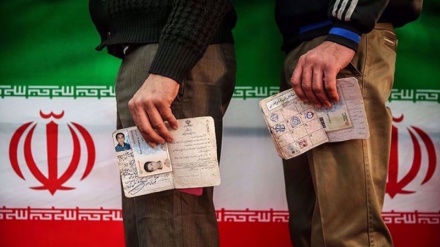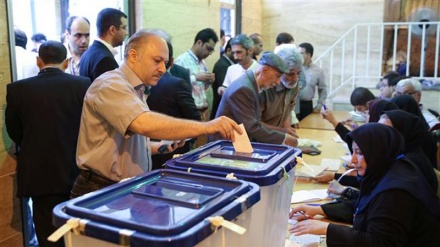A glance at other countries’ electoral supervisory organizations
Electoral systems are considered as the most important and effective means for establishment of a democratic political system.
Naturally, any given country plans and organizes its electoral system based on its own culture, religious values, and political structure.
After the victory of Iran’s Islamic Revolution; the sacred Islamic establishment was founded, based on participation of people in determination of their own fate, via holding a referendum. Throughout the existence of sacred Islamic system in nearly four decades, an election has been held every year in average. Until the year 1992, the president, lawmakers, and members of the Assembly of Experts were chosen within elections. Thereafter, Islamic city and village council elections have been held, in addition to presidential, legislative, and Assembly of Experts elections. In this manner, it can be said that Islamic Republic of Iran is among the countries which have held the highest number of elections, worldwide.
Political pundit, Dr. Seyed Morteza Kazemi Dinan, notes: “Other than the Guardian Council which maintains the vital role of vetting elections in Iran; a number of judicial organizations have also maintained a similar responsibility in other countries. In Turkey, the Constitutional Court maintains this duty. This fact is also observed in European countries. In France, the supreme court of justice shoulders this responsibility and/or in Germany, the constitutional court shoulders this duty. So we realize that in majority of countries, a number of organizations supervise elections, similar to the duty of Guardian Council in Iran.”
Elections in Iran can be studied in regard to the topic of supervision and mechanisms of supervision on elections. Meanwhile, some of the Western media and political circles fuel baseless propaganda campaigns against Iran in this regard. Some Western media and political circles seemingly try to convey the baseless message that supervision on elections only takes place in Iran, and that this is not the case in elections of other countries. However, a glance at the arrangements set by the constitutions of other countries show that supervision of elections has been considered as one of the necessities in securing the health of elections, by other countries, too. Several examples can be stated in this regard, which will be introduced to you, today, and in the coming days.
Currently, all countries put emphasis on confirmation of the health of elections; approval or rejection of candidates’ qualifications; and coverage of the complaints and protests of the nominees from the organizers of elections. This topic of importance has been pointed out in the constitutions of countries, in different forms and shapes. In the sacred Islamic system, this duty is shouldered by the Guardian Council.
In general, in any given political system, the supervisory organizations supervise appropriate enforcement of the existing rules and regulations based on two approaches. Based on one of these approaches, the supervisory organization gathers information. On this base, the observer is only duty-bound to be informed about the performance of implementers of the election. Thereafter, without taking any practical measures, and without approving or rejecting the terms of organization of elections, the observer only reports what he has observed to the implementers and organizers of elections.
However, another approach for supervision of elections is approbation supervision. On this basis, the observers should maintain an active presence in all phases and decision-makings in order to prevent any possible infringement. Meanwhile, this supervision takes place completely within the framework of the law, and conditions which law has determined for the candidates and/or terms of implementation of elections.
The political pundit, Kiumars Yazdan-Panah, notes: “Some powerful foreign media outlets have been making efforts to baselessly portray Islamic Republic of Iran as inefficient. They also groundlessly claim that Islamic Republic of Iran is incapable of fulfilling people’s demands. These foreign media outlets also unfoundedly claim that Islamic Republic of Iran causes restrictions for its own people and impacts elections via the usage of unconventional means. All of these baseless claims are made because of the success of democracy in Islamic Iran. It seems that this fact has angered the enemies, who try in vain to impact elections.”
As it was mentioned, the sources of supervision of elections in countries round the world act based on different approaches. Some of such supervisory organizations are constitutional courts, which are considered as judicial organizations. For example, constitutional courts are active in France, Austria, Germany, Bulgaria, Philippines, and Kyrgyzstan.
According to the 58th Tenet of French Constitution, the Constitutional Council supervises the appropriate enforcement of the presidential election act. In accordance with the 58th Tenet of French Constitution, the Constitutional Council supervises the health of elections, covers complaints and protests, and announces the results of presidential elections. Also, based on the 59th Tenet of French Constitution, the Constitutional Council can accordingly reject a complaint; annul elections; and/or amend the announced results. So, this supervision covers all phases of elections, from the very beginning till the very end. In the French ruling system, the presidential hopefuls’ candidacy is tied to collection of 1000 signatures from the valid figures of France, who are related to the ruling system.
Upon the consideration of the articles of other countries’ constitutions, one concludes that the duty of the electoral supervisory organizations in those countries is also an approbation supervision, which can ultimately annul a candidacy and/or elections.
The Leader of Islamic Revolution, Ayatollah Seyed Ali Khamenei, has noted: “The foundation of religious democracy is different to the foundation of Western democracy. In religious democracy, our election is founded on mankind’s divine right and duty. This is not just a contract. All humans maintain the right to determine their fate. This is what grants meaning to elections. In our country, and in the sacred Islamic establishment, elections are much more advanced than the elections in Western democracy and liberal democracy. This is a source of honor for us, which should be maintained.”
MR/EA


